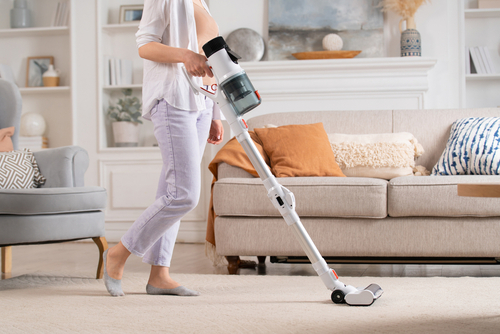Overview:
NARB issued a decision arising from a dispute between two vacuum brands, Dyson and Shark Ninja, that offers guidance on how many competitors are needed to test whether you are better than all competitors.
Hairy Situation
Shark Ninja produced and aired a 30-minute infomercial for its product, the Shark Stratos Powered Lift-Away vacuum cleaner. Various claims were made throughout the infomercial regarding how well the vacuum lifted hair and reduced odors. Dyson Inc., a competing vacuum manufacturer, challenged six express claims and nine implied claims before the BBB National Programs, National Advertising Division. The NAD confirmed that certain claims were supported, while others should be modified or amended. Shark sought to appeal the decision before the National Advertising Review Board (NARB).
The Claims
The Best Claim
With respect to claims that aspects of the Shark vacuum were the “best,” the claims that the NAD recommended revising were that the vacuum is:
- “The best hair pick-up of any vacuum,”
- “The best hair pick-up of any upright vacuum in America,” and
- “The most hair pick-up from floor to dust cup of any vacuum in America.”
While Shark tested 17 upright vacuums that claim specifically to pick up hair, NAD found that this was a misleading claim in its marketplace, and that the methodology was too limited. NARB, in agreement with NAD, ruled that Shark’s testing was inadequate to substantiate the claim.
The Malodorous Claim
Claims relating to odor elimination, which were express, included a claim that “Shark solves [the problem of vacuum odor] with a new and unique breakthrough odor neutralizer technology. This technology interacts with odor-causing particles and transforms the bad odors into fresh-smelling air.” This express claim came with an implied claim: visuals of blindfolded consumers smelling various vacuums and aminations of green particles, indicating foul smells. The NAD held that the implied and express claims were not substantiated by the research. NARB agreed with the NAD recommendations to discontinue the claims.
Methodology Meets A Claim
In this decision, the scientific methodology of the study Shark relied on was called into question. First, the NAD and NARB found that the 17 vacuums tested for their hair pickup power represented a mere 2.3% of the upright vacuum market, which is not enough support for a broad claim such as “best.” Further, Dyson brought up the point that the tests run were only on pet hair on one type of surface. NARB agreed, especially since there were various types of hair shown in the infomercial.
For its substantiation of the odor-reducing properties of the vacuum, Shark submitted a gas chromatograph mass spectrophotometry test, which is a sensory analysis conducted by an independent laboratory, and in-home use testing by consumers, conducted by Shark. The NAD said the methodology in these tests did not match the imagery that accompanied the claim. The sensory panelists were several feet away from the vacuum, where the imagery in the infomercial a consumer is several inches away from the odor. Also, the odor types did not align from the panel to the imagery in the infomercial, the NAD said.
Resolution and the Importance of Properly Conducted Claim Substantiation Research
The NARB echoed the NAD in its decisions on Shark’s claims, and Shark agreed to modify its claims to meet the methods and findings where they are at. This decision underscores the importance of conducting proper claims research, with researchers working closely with the advertiser’s advertising and marketing departments. Claims should conform with the results of the research–or risk being challenged. MMR Strategy Group conducts reliable sensory research for sensory claims like these. Contact MMR Strategy Group for more information.
